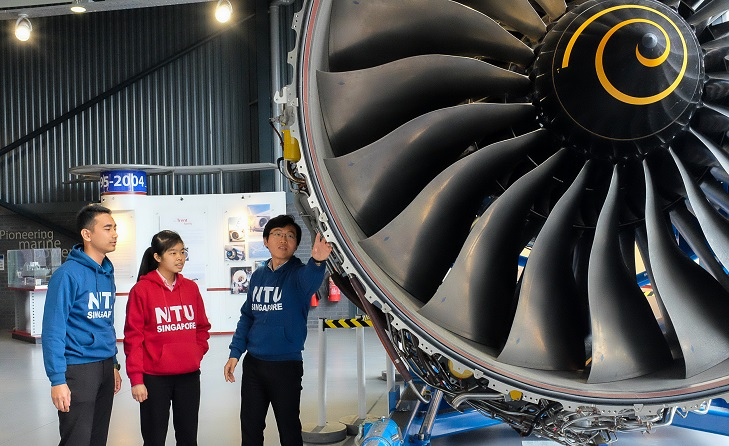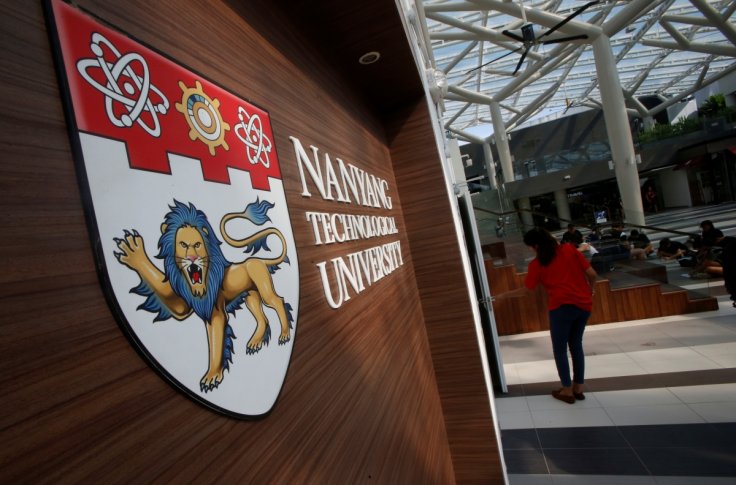
Asia's one of the best universities, Nanyang Technological University (NTU) has announced to launch six new SkillsFuture Work-Study Degree Programmes (WSDPs) in the new academic year for the undergraduate students, who are looking for a deeper understanding of an industry's inner workings.
NTU said that the university will launch a new minor programme which addresses youth-related issues that will help student and teachers to understand issues plaguing at-risk youths and guide them in their personal development. They also looking forward to launching six new engineering specialisations to ensure that NTU programs continue to meet changing industry needs brought about by technological advancements and add value to students.
NTU Provost and Vice President (Academic) Professor Ling San stated that "By collaborating with renowned industry partners, NTU is able to combine classroom learning with structured on-the-job training to equip students with the essential skills required to move into the workplace with confidence.
"This integration is paramount with the onset of Industry 4.0 and will greatly enhance our students' employment opportunities in highly competitive industries, while also meeting the sectors' high demand for quality graduates," Prof San added.
NTU is launching six new WSDPs through the introduction of an apprenticeship track for corresponding degree programmes to deepen industry exposure.
In a news release, the university clarified that students from Bachelor programmes in Materials Engineering, Mechanical Engineering (Design), Data Science and Artificial Intelligence, as well as Maritime Studies, can apply for the respective WSDPs. The students will complete three mandatory internships under their respective programs that will take 40 weeks to finish. The programs will also include an industry-sponsored final year project.
Currently ,WSDPs has nine industry partners, including multinational companies like Bosch, GSK and Global Foundries and Continental Corporation.
Students, who are pursuing Bachelor's degree in Business Analytics or a double degree in Accountancy and Business Analytics, can choose to take up the WSDP by completing three mandatory internships, which will be 36 weeks long.
"Those pursuing the double degree who want to have work exposure in different industries can choose to do two more internships, totalling another 18 weeks," NTU said.
"On-the-job learning is popular with students from Nanyang Business School, with many doing additional internships on top of their mandatory attachment programmes. Some even take leave of absence to go on extended internships as they recognise the value that industry exposure can do to jump-start their careers. With these new work-study degree programmes, business students looking to chalk up work experience will now be able to do so and still graduate at the same time as their peers," said Prof San.
In addition ,he also stated that "Companies today want to be assured that their new hires possess not just deep technical knowledge, but also passion and enthusiasm, as well as the ability to integrate into the organisation. Internships and attachments open such doors, and serve as a useful mechanism for attracting and selecting prospective employees."
NTU is also planning to introduce Minor in Youth Work and Guidance programme, which will allow undergraduates to gain an understanding of the psychological aspects of human development and the psychosocial issues faced by youth in contemporary societies.
This program is primarily designed for student teachers at NTU's National Institute of Education (NIE). But it is also open to all NTU students who can select courses under this programme as electives.

"The new Minor in Youth Work and Guidance will allow our trainee teachers at NIE to develop an awareness of basic counselling skills and motivational strategies to promote task engagement, interest and enjoyment in learning. For other NTU students keen on working on youth-related issues, the programme provides them with the necessary skills to explore a career in the social service sector," Prof San added.
NTU believes that Advanced Pharmaceutical Manufacturing, Machine Learning and Data Analytics, Intellectual Property for Chemical and Biomolecular Engineering and Intellectual Property for Bioengineering, these courses will equip students with skill sets and specialised knowledge that will give them a competitive edge over others in becoming technical specialists in their respective fields.
The students of Prospective and current electrical and electronic engineering (EEE) have an opportunity to choose the specialisation in which replaces and updates the existing Digital Media Processing specialisation, while Mechanical and aerospace engineering students can select new Smart Manufacturing and Digital Factory specialisation to acquire knowledge on digital advances.









